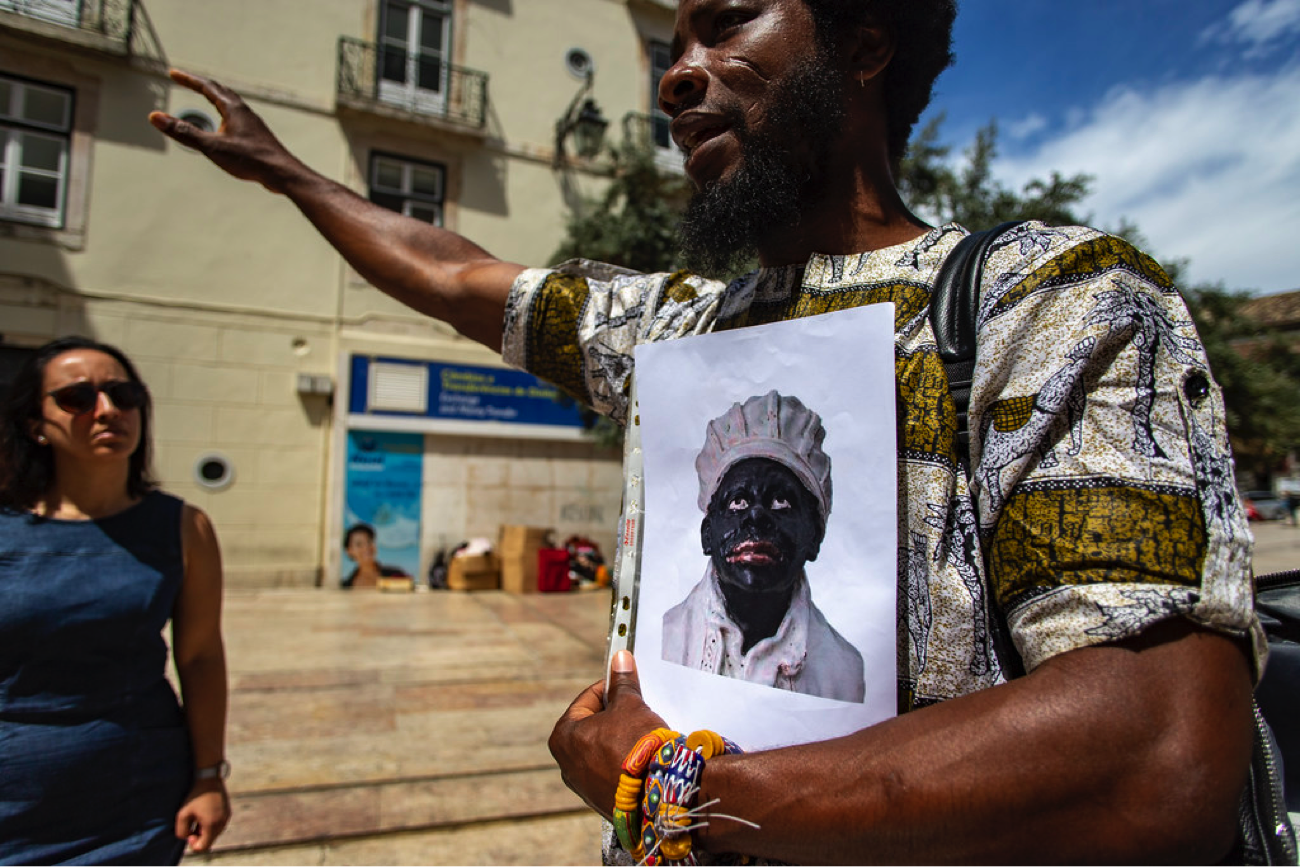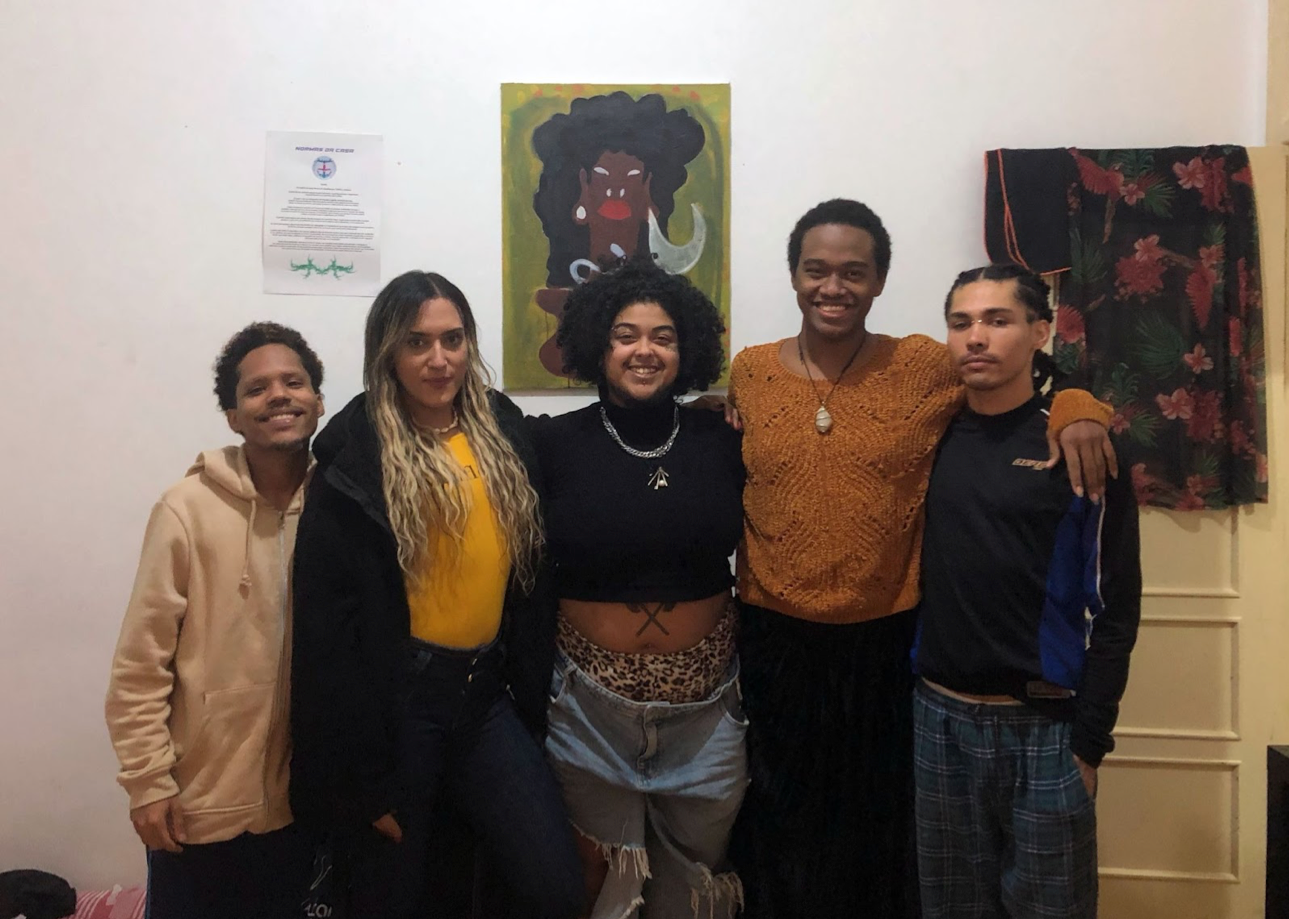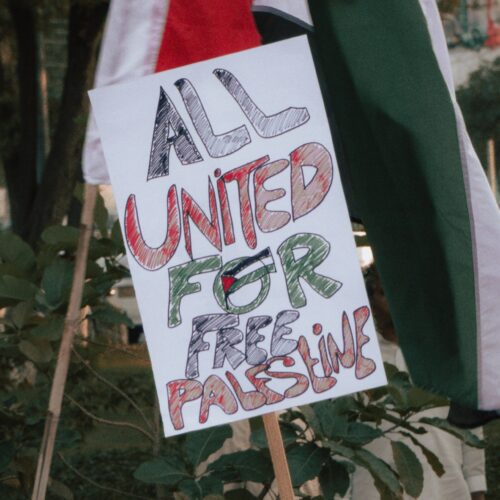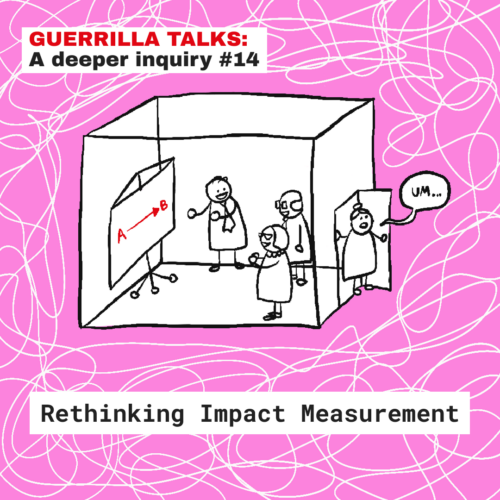There goes Lisbon, carried by the wind with its sails unfurled, proudly displaying its distinctive allure. Adorned with unique features, Lisbon has long been hailed as an eternal beauty since the days of kings. The cobblestones shimmer under the azure sky, while the iconic tiles serve as an indelible symbol of the city’s identity. Today there were no more kings, but many other rich people, among them tourists. And for how many years have not these tourists made Lisbon feel the prettiest! This vain city has made financial investment its best friend, embellishing it like cosmetic powder enhances a facelift, making Lisbon appear in composure – which pleases the rich and the tourist. The city in turn presents its smile for the photograph, and the tourist, with romanticism, concedes it today as their first-class destination.

Coasting downhill its steep seven hills, the subaltern city is seen at a glance – rough, erratic, diverse -, the Lisbon that the makeup hides and that tries to survive in the face of the exclusion that the beautified city centre conveys. “Watch me closely and see my wrinkles”, says Lisbon about the colonial past yet to be repaired.

Wandering through the streets of this erroneous city, I made my way to the awaited meetup with Casa T, a space in the city of refuge and resistance that is caring for the Lisbon at the margin. The letter T represents the trans residents of the house, who live in the systemic yoke of different forms of oppression: they are trans, migrants, black, many without access to the legal labour market and with open documentation processes. Their life stories and arrival to the city of Lisbon are marked by hardships linked to their identity and condition, but which together they collectivise and transform into banners of radical activism. Being the only space in the city that deals with conflated and diverse forms of violence affecting the black and immigrant LGBTQIA+ community – from the housing crisis, racism, and transphobia to how capitalism erodes the solidarity social fabric of Lisbon -, Casa T is today a space of urgency in this city.

It was in 2020 that the members of the community – until then dispersed and in transient cycles of eviction – found an old apartment in the parish of São Vicente, through the fortune of one of the member’s fathers offering to formally lease it. A common space was enough for the group to work on the collective sense of their experiences, while building a safe space to expose their stories. It was the sharing of a physical space that allowed the group to build an intentional community, able to support one another when facing vulnerabilities, and to collectively process the systemic harms they experience on a daily basis, especially the lengthy and challenging legal and health care access processes they face.
“Until now, I feel that we were very isolated, each one rowing on their own course. And the intention of Casa T is so that we can, within our group, take care of ourselves, look after each other and engage in conversation with more people.”
– Aquilla, one of the founders of Casa T during an interview with Público newspaper.
As a self-organised LGBTQIA+ collective of trans, migrant, black queens, Casa T emerges to reconcile the difficulty of an individual journey with a collective and political struggle in response to a distinctly systemic and intersectional problem, politicising their challenges and making noise in the public sphere, opening political space for their representation and visibility, and finding allyship with other informal collectives and activist groups with whom they share political values, ideas and practices. As a community, Casa T is creating a thread of mutual support and solidarity with current and past residents of the house as well as their allies, weathering storms of violence together and transforming the systemic aggressions they suffer into generative processes of awareness raising, healing, care, political activism and artistic creation.
There’s no doubt that the commotion lived by trans immigrants can induce profound traumas, and one of the most revolutionary and sensitive ways of processing these traumas is through creative expression. This is a popular practice at the Casa, where artistic practices are anchors for individual agency and collective empowerment. From illustration and tattooing to performance or acting, Casa T is now recognised for its safe underground cultural events in the city and beyond: music and dance are ways of breaking the loops of injustice they live, and today, Casa T’s political art already runs the stages with the work of the irreverent multi-artist afrotravesti Puta da Silva (Silva’s Whore). However, the precariousness of Portugal’s cultural sector doubly affects the community of transvestigender artists, as was made evident by the case of Keyla Brasil, a travesti actress who in a disruptive political act boycotted the play “All About My Mother” taking place at the São Luís national theatre, a play centred on trans rights adapted from the film with the same name by director Pedro Almodôvar. The “trans fake” accusation led Keyla to expose her situation of prostitution and threat to a dignified life, which rendered visible the lack of legal and safe work opportunities for the trans community.

If Keyla’s story is an act that acknowledges how releasing and empowering vulnerability can be, it also puts at stake the safety of individual group members who face challenging situations. In a transphobic society, exposure can lead to acts of violence putting at stake the safety of trans lives, while polarising the public debate around the topic and potentially letting relationships with political allies go off kilter.
This case serves to remind the Portuguese society of how there is still a long path to walk in recognising the struggles of trans lives and their access to safe, dignified, legal and non-precarious housing and labour opportunities, as well as visibilising intersected forms of discrimination. We need to forge more communal spaces where we can lick our wounds in a collective way: offering ourselves vulnerable to others allows people to mirror themselves in their emotional world and see our collective body of pain and grief. It’s in communal spaces that we can cultivate immunity that enable us to expose our personal vulnerabilities in safety. Let us create space within ourselves and in society to unlearn heteronormativity.
“the problem is our mind; our minds’ fight, but our souls and bodies are in perfect harmony.”



